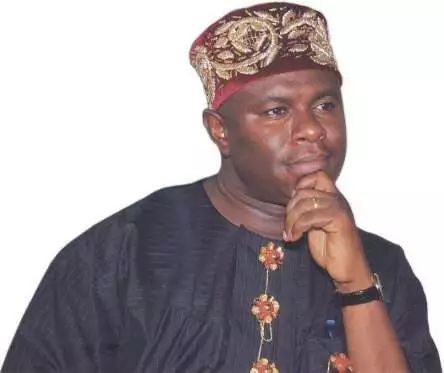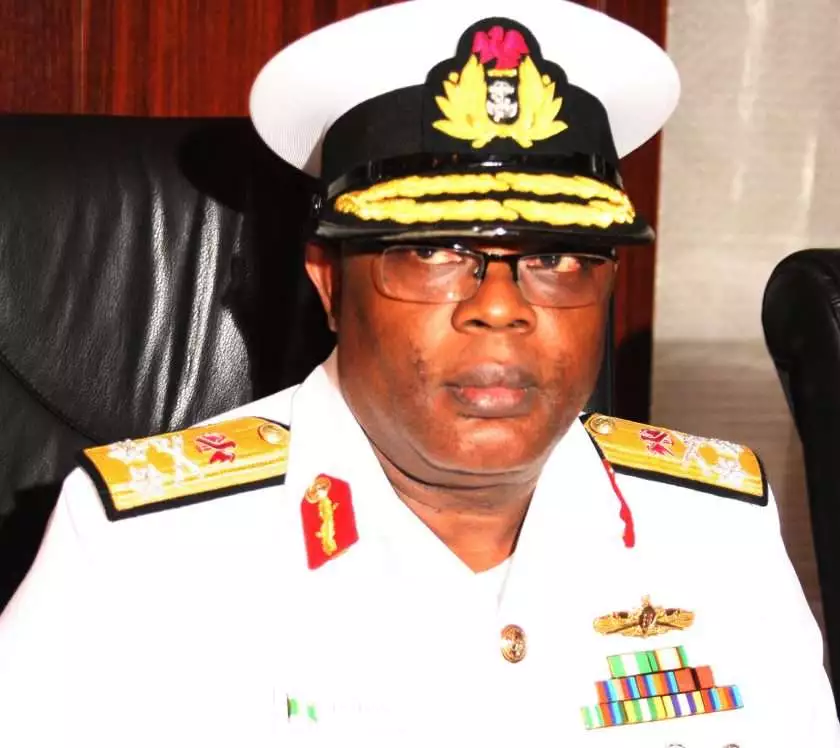Ibok-Ete Ibas, a Vice Admiral and Chief of Naval Staff has a big task at hand: to bring to book his men who have arrogated to themselves the powers of the National Maritime Administration and Safety Agency, NIMASA, of regulating the nation’s maritime sector by arresting merchant vessels within Nigeria shores on alleged illegal lifting of Crude Oil, improper documentation, ship hijack and othersundry offences.
Take for instance, MT Success owned by Hepa Global limited which was arrested on February 29,2014 and MT Deby, owned by Banquest Chamber arrested in 2015. Investigation by the Magazine shows that the Seafarers on board the vessels were also arrested and detained by the Navy without getting the approval of NIMSA which has the powers to arrest and detain vessels.
Many had expected Ibok to save Seafarers from his officers but nothing appears to have been done, fueling speculation that the Naval Chief may have endorsed the action of his officers. The Magazine learnt that between last year and now, no fewer than 250 arrested Seafarers are languishing in various prisons in Nigeria.
That much was confirmed by Otunba Kunle Folarin, an indigenous Shipping magnate. Folarin’s major worry was that most of the arrested vessels were chartered vessels, noting that the ship owners may not know what the Charterers would deploy the vessel to do in their own country, whether to use it for legitimate cargo carrying business or illegal business.
He gave an insight to the key players to ship management in the Oil and Gas sector of the economy which include the Ship Owners, Manning Agents, and the Maritime Administration of the country. Take for instance, it is manned by NIMASA. This is in addition to the Oil exploration and Development Companies as well as the Oil and Gas Services Operators.
He was forced to speak out at a one day sensitization Seminar on Local Content Development in shipping ,Oil and Gas Logistics Operations in Nigeria organised by the Maritime Reporters Association of Nigeria, MARAN, in Lagos.
Given his world view of the activities of Seafarers in Ships,he stressed that they are employees of the Ship owner or Charters, protected under the International Maritime Organisation, IMO, and International Labour Organisation, ILO, Conventions which had been ratified by many countries including Nigeria.
The Conventions, he said ”deal directly with the issues that are relative to Seafarers ‘s welfare right and obligations”. He confirmed that the Maritime Labour Convention, MLC, 2006, have also been ratified by the government as a way to forestall ill- treatment of Seafarers in maritime nations .
Given the strategic role of Seafarers in Shipping Operations , Folarin said the demand for their services in all sectors of the world economy: International trade, Oil and Gas carriage for the Merchant Navy and in the Navy for National defence is very high.
He alluded to the nation’s nation’s Shipping policy of the 1987 under the National Maritime Administration ct which recognised the position of the Seafarers and made it mandatory that the position of Chie Mate and Captain should be held exclusively by Nigerians. the Oil and Gas Local Content Development Act 2010, which was signed into law by former President Olusegun Obasanjo was expected to give support to the NIMASA Act.
If the Shipping Act had been fully implemented as expected by NIMASA, Nigerians should have been the first consideration for training and employment in the work programme for which the plan was submitted by the Ship owner or Charterer. The policy may have been frustrated by the foreign domination of the country’s Shipping sector, and thus the domination other countries Seafarers in the country’s Shipping sector. The fallout was that most of the Seafarers who had entered into troubled waters had been abandoned in the country bb by the Ship Owner or agent.
The imigration officials were said to have had the trouble of bearing the burden of repatriating the abandoned Seafarers to their countries of origin. Ukachukwu Joe, a Lagos based business averred that if the Shipping Companies operating in Nigeria had kept to the government policy of engaging more of Nigeria trained Seafarers the problem of ”abandoned Seafarers would not arise.
The foreign domination of the nation’s Shipping sector is not unexpected. This is because over 70 percent of the Crude Oil produced in Nigeria oil production which are transported by Ships, were handled by the foreign Shipping Companies who which had already engaged the services of Asian and other African countries Seafarers before sailing to Nigeriaa.
Dakuku Peterside, Director General, NIMASA, explained that the country” generates an estimated annual cargo throughput of 150 million metric tons with freight earnings in excess of 5 billion in her international trade transactions”.
Peterside disclosed that the” same dominance by foreign Seafarers international trade has been extended to the domestic Shipping market where the estimated $3 billion annual maritime related spending on the Oil and Gas production activities are virtually earned by foreigners”.
The NIMASA boss said the Agency is doing everything to reverse the trend by reviving the indigenous Shipping sector which appear to be a comatose over the years. He has given his word that the Agency would soon start the disbursement of the Ship Building and Ship Acquisition Fund, SBSAF, to
prospective beneficiaries to be able to buy Ship that would engage Nigeria Seafarers.

Dakuku Peterside, DG NIMASA
Insider sources told the Magazine that delay in the disbursement of the multi-million naira fund was because of the involvement of the Banks . Chibuike Rotimi Amaechi, minister of Transport was said to have kept a close tab on NIMASA, the disbursing agency to ensure that only genuine local Ship operators were given the loan instead of making an all comers affair. The involvement of the bank and the ministry in SASBF disbursement process may have weighed down on NIMASA officials to trade with caution to avoid playing into the hand of officials of the Economic and Financial Crimes Commission, EFCC, for offence not committed.
But Folarin said the indigenous Ship owners could save themselves the trouble of going cap in hand to NIMASA to solicit for financial support to buy Ships for carriage of cargoes to make , when there are several other alternative sources of funding to restore the vibrancy of the local Shipping sector that could compete with the International Shipping Community.
Discover more from The Source
Subscribe to get the latest posts sent to your email.









